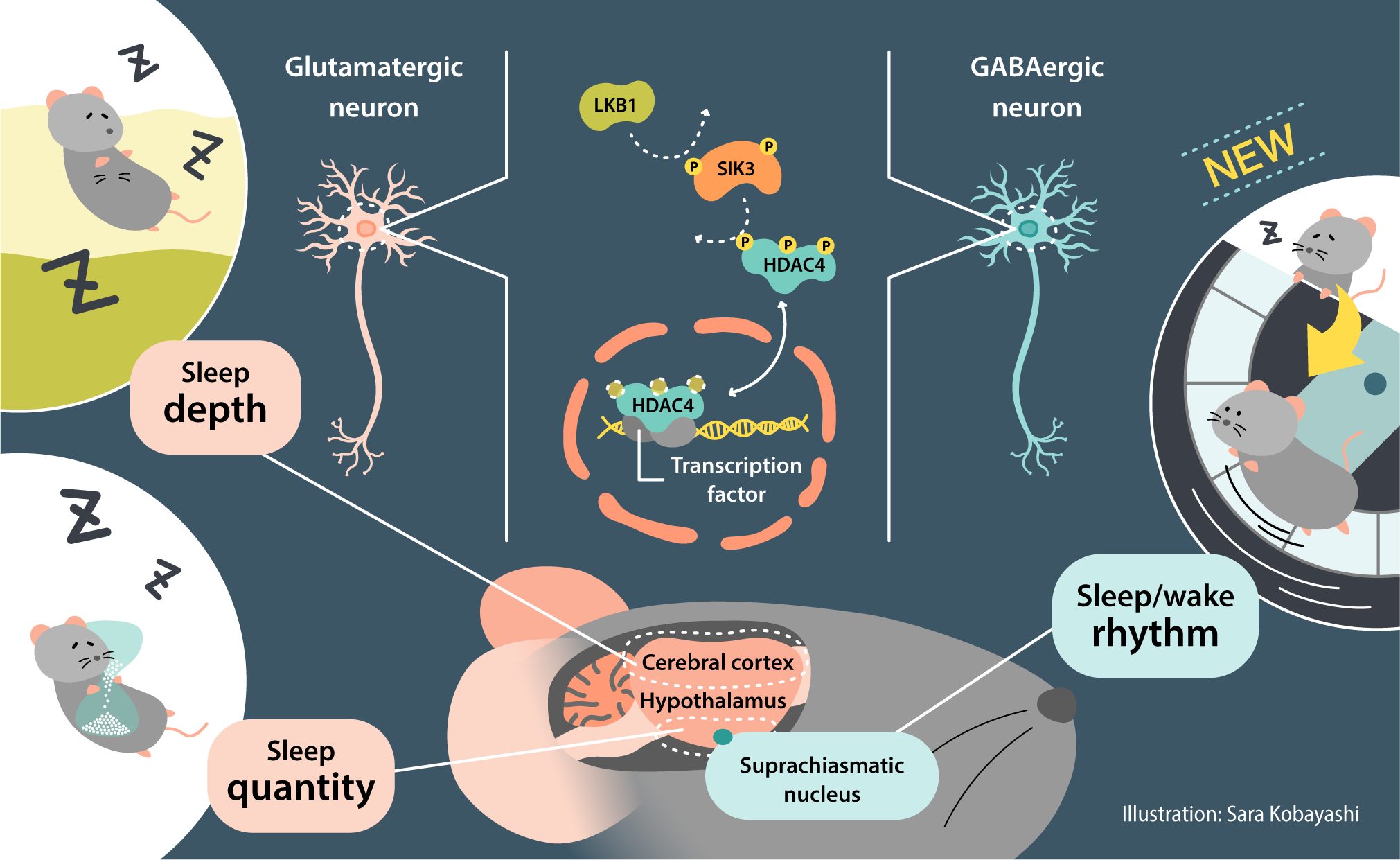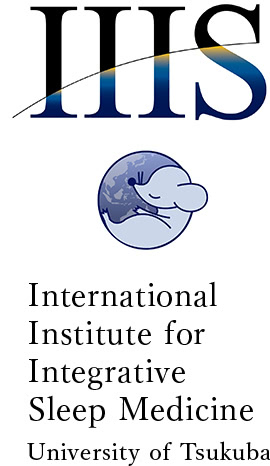
2023.03.30
Keeping time: understanding the master clock in the brain
Researchers from the University of Tsukuba found that, in neurons that produced the neuropeptide NMS, the interaction between molecules SIK3 and HDAC4 has a critical role in sleep regulation through both the length of the circadian period and sleep homoeostasis. Given the similarities among different mammals, new information about how the circadian system works in mice could lead to new treatments for sleep and circadian rhythm disorders in humans.
| Press Release | |
|---|---|
| Article |
